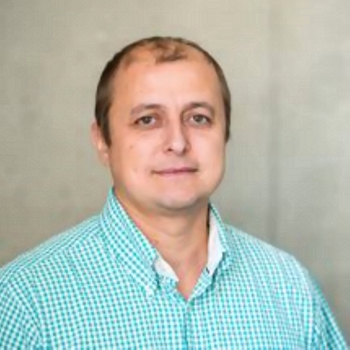

 Prof. Dr. Andriy Luzhetskyy, Professor of Pharmaceutical Biotechnology at Saarland University in Saarbrücken in southwestern Germany, heads up a research group at the Helmholtz Institute for Pharmaceutical Research Saarland (HIPS) focused on metabolic engineering of actinobacteria.
Prof. Dr. Andriy Luzhetskyy, Professor of Pharmaceutical Biotechnology at Saarland University in Saarbrücken in southwestern Germany, heads up a research group at the Helmholtz Institute for Pharmaceutical Research Saarland (HIPS) focused on metabolic engineering of actinobacteria.Actinomycetes have produced various antibiotics and antitumor agents, and are used industrially to produce antibiotics and agrochemicals, but recent DNA decoding of the entire genomes of actinomycetes indicates that they have huge potential to do a lot more. Tapping into this potential however needs fresh approaches in new drug discovery. The Luzhetskyy group is applying a synthetic biology approach to develop a truly functional technology platform for the discovery, bioengineering, and sustainable delivery of compounds hidden in genomes for pharmacological testing.
This involves firstly, capturing metabolic pathways that encode bioactive molecules; then completely remodelling them by replacing all the natural regulatory DNA "components" with synthetic genetic control elements; and finally transplanting the remodelled metabolic pathways into simplified, reliable bacteria for producing bioactive natural products.
Professor Luzhetskyy is confident that this generally applicable strategy is set to enable the discovery of thousands of novel bioactive molecules with the potential to be the next generation of effective drugs, but it is not all about drug discovery. Existing biopharmaceutical processes can also be improved by bacterial strain optimization through genome engineering, so that only the desired target actives are expressed without undesired co-metabolites, a true greener by design approach.
“Using natural drug production organisms with clean metabolic profiles, we can prevent the release of toxic side-products into the environment and simplify downstream processes reducing the number of purification steps”
 As Professor Luzhetskyy explains, “We have been motivated by our success within an ERC Starting grant funded project where we constructed a programmed cell factory of Streptomyces albus lacking most of the indigenous biosynthetic gene clusters and thus having a clean metabolic background. Using this strain as a chassis for heterologous expression of various engineered biosynthetic gene clusters we’ve been able to discover more than 200 new bioactive natural products with a high pharmaceutical potential. We believe that there is much more to get from rationally engineered bacterial production strains. Using natural drug production organisms with clean metabolic profiles, we can prevent the release of numerous toxic side-products into the environment and simplify downstream processes reducing the number of purification steps and thus the use of organic solvents.
As Professor Luzhetskyy explains, “We have been motivated by our success within an ERC Starting grant funded project where we constructed a programmed cell factory of Streptomyces albus lacking most of the indigenous biosynthetic gene clusters and thus having a clean metabolic background. Using this strain as a chassis for heterologous expression of various engineered biosynthetic gene clusters we’ve been able to discover more than 200 new bioactive natural products with a high pharmaceutical potential. We believe that there is much more to get from rationally engineered bacterial production strains. Using natural drug production organisms with clean metabolic profiles, we can prevent the release of numerous toxic side-products into the environment and simplify downstream processes reducing the number of purification steps and thus the use of organic solvents.
This exciting line of research is being developed in the ETERNAL project by Alina Zayachkivska, a member of the Luzhetskyy group since 2022. Alina first arrived in Saarbrücken through a three-month research internship from Vasyl Stefanyk Precarpathian National University in Western Ukraine where she obtained a Masters in Biochemistry and Biotechnology. This was made possible by a grant from the Federation of European Microbiological Societies (FEMS). During her internship Alina investigated the synthesis of secondary metabolites in actinobacterial cells targeted towards finding new biologically active substances with antibiotic activity, mastering methods of molecular biology and biochemistry including polymerase chain reaction, gel electrophoresis, liquid chromatography, mass spectrometry and more. Clearly, Alina’s efforts must have impressed, as now she is entrusted with a key role in delivering Saarland University’s activities in the four-year ETERNAL Horizon Europe collaboration.
“One day all fermentation processes will be based on engineered clean strains releasing minimal or no toxic impurities into the environment.”
When asked to sum their hopes up, Andriy and Alina described a dream they share, namely that, “One day all fermentation processes will be based on engineered clean strains releasing minimal or no toxic impurities into the environment.” We wish them well!
This site uses cookies that enable us to make improvements, provide relevant content, and for analytics purposes. For more details, see our Cookie Policy. By clicking Accept, you consent to our use of cookies.